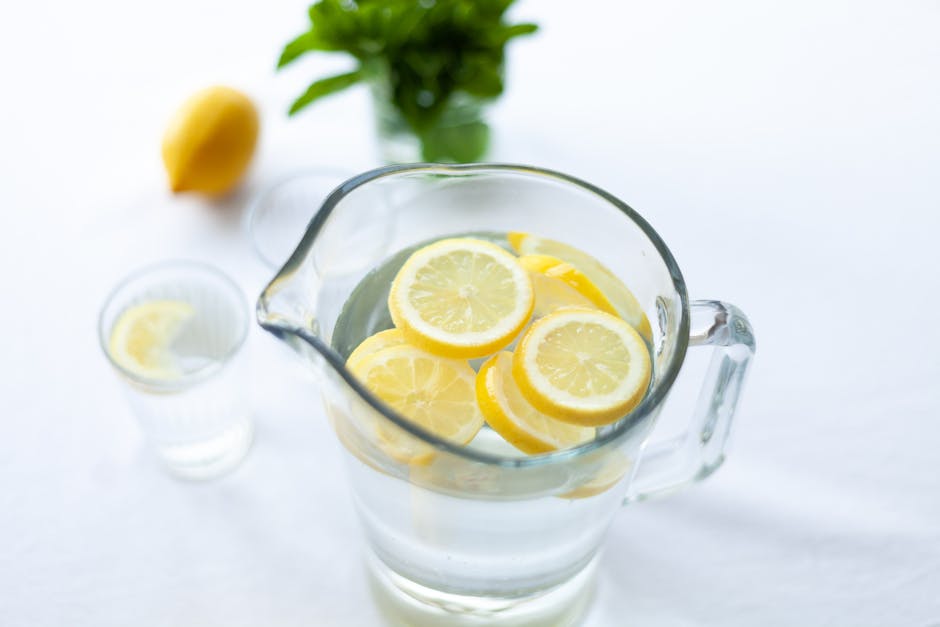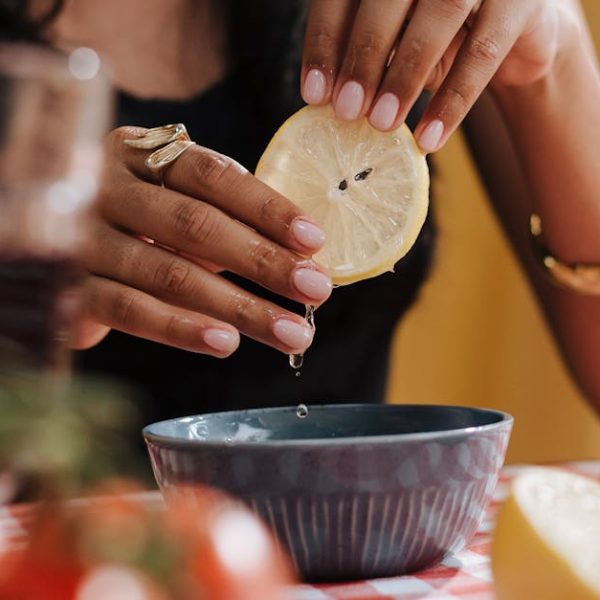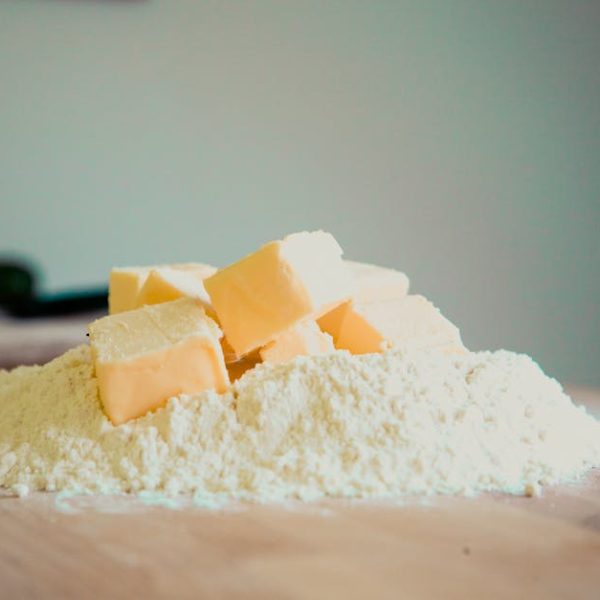There are few things as refreshing on a summer day than the zesty zing of a freshly squeezed lemon. But whether you’re using them to flavor drinks or meals, or just looking to enjoy their natural health benefits, you’ll want these citrus bursts to stay fresh for as long as possible. So, let’s peel back the secrets, sharing seven simple yet effective tricks to keep your lemons fresh and flavorful for longer.
1. Storing Lemons in a Cool, Dry Place
Keeping lemons at room temperature? Well, it’s essential they’re stored in a cool, dry place. The reason being, warmer temperatures and moist environments are breeding grounds for bacteria, causing your lemons to become moldy and lose their freshness quicker. When kept in the right conditions, whole lemons can maintain their prime state for up to two weeks.
Ideally, you’ll want to keep them in temperatures between 12°C – 15°C (54°F – 59°F), away from sunlight or any heat sources. Also, remember to keep them spaced out to prevent clustering, which could lead to premature rot or mold.
Best Practices for Storing Lemons at Room Temperature:
- Do place your lemons in a non-insulated, well-ventilated basket or bowl.
- Don’t store them near fruits like bananas which release ethylene gas, speeding up the ripening process of nearby fruits.
- Do regularly check your lemons and remove any that show signs of mold, to prevent it from spreading to the other fruits.
2. Preserving Lemons in the Fridge
If you aren’t planning on using your lemons within two weeks or have already sliced into one, the refrigerator can almost double their longevity. Refrigerated lemons can last 3-4 weeks in the crisper drawer, helping them retain their moisture better than room temperature storage.
Though some experts argue that refrigeration may disrupt the natural enzymes of the fruit, the benefits of extended freshness and prevention of wastage overshadow this slight concern.
Checklist for Refrigerating Lemons:
- Place whole lemons inside the crisper drawer.
- Sliced or halved lemons should be refrigerated in an airtight plastic bag or container.
- Check regularly for any signs of mold, especially in a humid refrigerator, and remove affected fruits.
3. Storing Sliced or Juiced Lemons
Once cut or squeezed, a lemon’s shelf life decreases drastically due to oxidization. To counter this, proper storage is critical. Squeezed juice can be kept for up to 2-3 days in the fridge when sealed properly, while slices or halves can last up to a week.
The key here is to minimize the fruit’s exposure to air. To seal in that freshness, opt for airtight containers or opt for wax paper wrappers which allow the fruit to breathe a little too.
Tips for Storing Lemon Slices and Juice:
- Store slices flat in airtight containers, this minimizes the surface area in contact with air.
- Keep the seeds in the juice to maintain its freshness.
- Freeze lemon slices or juice in ice cube trays to use as a zest-filled addition to drinks.
… (continued in the next response)…
4. Sealing Lemons in Plastic Bags
Sealing lemons in plastic bags is another way of extending their shelf life as it helps in retaining their moisture. Remember that lemons are made up of 90% water and it’s loss makes them dry out and lose their freshness, especially if split. But a plastic bag can really slow down that process. Upon sealing, they can be stored at room temperature if they will be used within a week, otherwise refrigerate them.
Ensure that you use sealable plastic bags and squeeze out as much air as you can before sealing. They should be kept away from other fruits and veggies to avoid any premature ripening caused by ethylene gas.
Best Practices for Storing Lemons in Plastic Bags
- Ensure the bag is airtight and free of holes.
- Never store a cut lemon. Always use a whole one.
- Remove any lemons showing signs of mold to prevent it from spreading to others.
5. Freezing Lemons for Longer Shelf Life
Yes, freezing might seem like a drastic move, but when life gives you way too many lemons (and you can’t consume them quickly enough), freezing comes in handy. This trick works particularly well for juiced or zested lemons. They retain their goodness for as long as six months. When needed, thaws them at room temperature and they’re ready to use.
However, be aware that frozen and then thawed lemons could lose their firmness – they’re best used in cooking or baking rather than raw.
Checklist for Freezing Lemons:
- Make sure the lemons are completely dry before freezing to prevent ice crystals from forming.
- For lemon juice or zest, try using ice cube trays for convenient, portion-sized freezing.
- Always label your items with the date so you can keep track of how long they’ve been in the freezer.
6. Preserving Lemons in Salt or Pickling Them
When it comes to preserving lemons in salt, we have the traditional Moroccan method to thank. Not only does it allow lemons to last for about a year, it also enhances their taste, texture, and versatility. Keep in mind that salted lemons are more of a condiment rather than a direct substitute for fresh.
Pickling, as an alternative, involves immersing the lemons in a mixture of water, salt, and sometimes spices. Pickled lemons have a great tang that makes them a good addition to salads, stews, and fish dishes.
Pro tips for Pickling or Salting Lemons:
- Choose organic lemons since you’ll end up consuming the skin.
- Be creative with flavors. Add spices like coriander, peppercorns, or cinnamon to your mix.
- Always make sure the lemons are submerged in their juice. Over time, take a peek to ensure none have bobbed above the liquid’s surface.
7. Using Lemon Zest to Eliminate Waste
Zesting is a bright idea if you want to fully utilize your lemons before they spoil. The zest is packed with as much flavor as the juice. It’s a perfect addition to desserts, marinades, salads, and even homemade cleaning solutions.
Remember, it’s best to wash and dry the lemons before zesting, and only the yellow should be used – the white pith can be bitter.
Best Practices in Zesting Lemons:
- Always wash lemons before zesting to eliminate any residue or microorganisms.
- Avoid zesting deep into the white pith, which can give a bitter taste.
- Zest lemons before squeezing them for juice. It’s much easier that way!
In conclusion, there are several ways to ensure your lemons remain fresh while also reducing waste. Each of these seven tricks can be utilized based on your usage patterns and taste preference. The key is attention and intention. So, when life gives you lemons, you’ll know just what to do!
Key Takeaway:
- Storing lemons in a cool, dry place can prevent mold growth and keep them fresh for up to two weeks.
- Refrigeration can extend the life of lemons, with a shelf life of 3-4 weeks. Slice/halved lemons should be stored in airtight containers.
- Sealing lemons in plastic bags helps them retain their moisture, prolonging their freshness.
- Freezing lemons can extend their lifespan for up to six months, especially effective for juiced or zested lemons.
- Traditional methods such as preserving lemons in salt or pickling them can extend their freshness while also enhancing their flavour.
- The zest of lemons can be used to prevent waste and make them last longer.
Take comfort in the fact that armed with these simple yet effective tricks, you can keep your lemons fresh and flavorful for longer periods while reducing waste. Remember, it’s all about the right storage conditions and the practice of mindful consumption. Happy zesting!
FAQs
Q: Does the method of storage differ for organic and regular lemons?
A: Generally, the storage methods are the same for both organic and regular lemons. However, organic lemons might ripen or spoil slightly faster due to absence of preservatives.
Q: What is the best way to store half a lemon?
A: The best way to store a half lemon is to place it cut-side down on a small plate wrapped in cling film, or in an airtight container in the refrigerator.
Q: Can I freeze whole lemons?
A: Yes, you can freeze whole lemons. However, they may lose their firmness once thawed and are best used in cooking or baking.
Q: Can lemon zest be frozen?
A: Yes, lemon zest can be frozen. You can store it in a sealed bag or airtight container in the freezer.
Q: How to prevent mold on lemons?
A: To prevent mold, lemons should be stored in a cool dry place away from other fruits. Regularly check and remove any lemons showing signs of mold to prevent it from spreading to others.
Please feel free to explore more articles on our site and share the knowledge with your friends.






